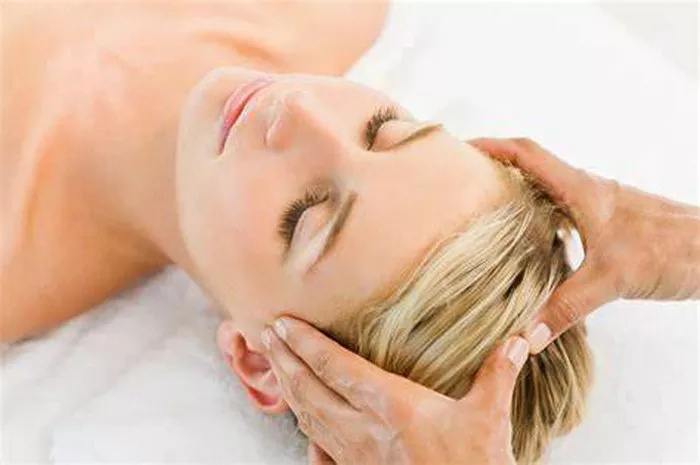Dyed hair can be a stunning expression of personal style, offering a way to stand out or embrace a new look. However, maintaining the vibrancy and health of colored hair often raises an important question: Can I wash my dyed hair every day? This article delves into the factors affecting hair care for dyed locks, the effects of frequent washing, and tips for maintaining your color while keeping your hair healthy.
Understanding Dyed Hair
Before we explore the washing habits for dyed hair, it’s crucial to understand what happens to your hair during the dyeing process. Hair dye works by altering the natural pigment of the hair, either through permanent, semi-permanent, or temporary methods. This process can leave the hair more porous and susceptible to damage, making care an essential aspect of maintaining both color and hair health.
The Impact of Hair Dye
The dyeing process can:
Open the Hair Cuticle: Hair is made up of several layers, and the outer layer, known as the cuticle, must be opened to allow the dye to penetrate. This process can leave hair more vulnerable to damage.
Cause Dryness: The chemicals in hair dye can strip moisture from the hair, leading to dryness and brittleness.
Alter Hair Texture: Dyed hair may feel different than untreated hair, often becoming rough or coarse.
Understanding these effects can help you make informed decisions about how often to wash your dyed hair.
Can I Wash My Dyed Hair Every Day?
The simple answer is no, it’s generally not recommended to wash dyed hair every day. Here are the main reasons why:
Color Fade
Frequent washing can lead to color fading. Most hair dyes, especially semi-permanent and permanent ones, are designed to last for a specific duration. Washing your hair daily can strip away those color molecules, causing your hair to lose its vibrancy and shine much faster than expected.
See Also: Air Dry vs. Towel Dry: Which Method Is Better for Your Hair?
Stripping Natural Oils
Your scalp produces natural oils that help nourish and protect your hair. Washing daily can strip these oils away, leading to dryness, frizz, and a lack of luster in your hair. These natural oils also play a crucial role in maintaining healthy hair texture.
Damage and Breakage
Frequent washing, combined with the use of heat styling tools and coloring products, can lead to increased damage and breakage. Dyed hair is already more fragile due to the dyeing process, and washing it every day can exacerbate this issue.
Increased Use of Hair Products
Daily washing often requires more frequent use of shampoos, conditioners, and styling products, which can build up on the hair. This buildup can lead to a dull appearance and may require clarifying shampoos that can further strip the hair of its color.
Best Practices for Washing Dyed Hair
While washing your dyed hair every day may not be advisable, establishing a suitable washing routine is essential for maintaining your hair’s health and vibrancy. Here are some best practices:
Wash Less Frequently
Aim to wash your dyed hair 2 to 3 times a week. This frequency helps preserve color while allowing your scalp to produce natural oils that keep your hair healthy.
Use Sulfate-Free Products
Choose shampoos and conditioners labeled sulfate-free. Sulfates can be harsh and strip color from dyed hair. Opt for products specifically formulated for colored hair, which are gentler and help maintain vibrancy.
Rinse with Cool Water
When washing your hair, use cool water instead of hot. Cool water helps to close the hair cuticles, locking in moisture and color while reducing frizz.
Condition Regularly
Always use a good-quality conditioner after shampooing. Conditioning helps restore moisture to your hair and protects your color. Consider using a leave-in conditioner for extra hydration.
Limit Heat Styling
Heat styling tools can damage dyed hair, leading to dryness and breakage. Try to limit their use and incorporate heat protectants when necessary. Embrace natural hairstyles whenever possible to give your hair a break.
Dry Shampoo for In-Between Washes
If your hair feels oily or dirty between washes, consider using dry shampoo. This product can help absorb excess oil without the need for frequent washing, keeping your hair looking fresh.
Protect Your Hair from Sun Exposure
UV rays can fade hair color, so consider wearing hats or using UV-protectant hair products when spending time in the sun.
Regular Hair Treatments
Incorporate deep conditioning or hair masks into your routine at least once a week. These treatments provide extra nourishment, helping to maintain moisture and improve the overall health of your hair.
Signs You’re Washing Your Hair Too Much
If you’re unsure about your hair-washing frequency, look out for these signs that you might be overwashing:
Color Fade: Your hair color appears dull or less vibrant than when you first dyed it.
Dryness: Your hair feels dry, brittle, or lacks moisture.
Scalp Issues: You experience irritation, itchiness, or increased oiliness on your scalp.
Breakage: You notice more split ends or hair falling out than usual.
If you’re experiencing any of these issues, it may be time to reconsider your washing habits.
Conclusion
While the allure of maintaining vibrant, beautiful dyed hair is tempting, washing it every day can lead to color fade, dryness, and damage. Adopting a mindful approach to hair care will help you preserve your color and keep your hair looking its best.
By washing your dyed hair less frequently, using gentle products, and implementing a nourishing routine, you can enjoy your colored locks for longer. Remember, the goal is not only to maintain color but also to keep your hair healthy and radiant. Embrace your unique style and treat your hair with the care it deserves!
You Might Be Interested In
- Is Drinking Water Good for Hair Growth?
- Is Silicone Bad for Curly Hair? Unpacking the Myths and Facts
- Can Split Ends Be Repaired? Understanding Hair Health and Care


